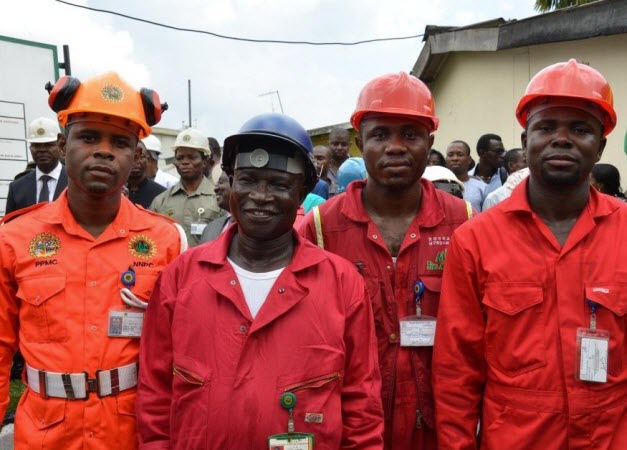There are no products in your shopping cart.
| 0 Items | £0.00 |

 NIGERIAN crude oil production has grown to a four year high of 2.2m barrels a day over the last month as output has been stepped up in defiance of the Organisation of Petroleum Exporting Countries (Opec) directive limiting daily supply to 1.77m barrels.
NIGERIAN crude oil production has grown to a four year high of 2.2m barrels a day over the last month as output has been stepped up in defiance of the Organisation of Petroleum Exporting Countries (Opec) directive limiting daily supply to 1.77m barrels.
Historically, Nigeria has had an Opec quota of 2.5m barrels a day but over the last year, the organisation announced a series of cut, asking its members to limit output in a bid to stem a glut and rally prices. Nigeria's quota was thus pegged at 1.77m barrels a day but this created a problem as the 2020 budget was predicated on the country producing 2m barrels a day at a minimum price of $60 a barrel.
Last years, prices dipped below $60 a barrel but over recent months they have rallied and with the recent US/Iran standoff, they no hover around $70 a barrel. Producing 2.2m barrels a day at a cost of about $70, Nigeria is on course to meet her budgetary projections, which could stem the current economic gloom the country faces.
Mallam Mele Kyari, the managing director of the Nigerian National Petroleum Corporation, (NNPC), recently revealed that s crude oil output rise to 2.2m barrels per day in December. Speaking at the Atlantic Council Global Energy Forum in Abu Dhabi, Mallam Kyari said the move was not in defiance of Opec, however, because the quotas only apply to crude oil production, not condensate.
He, however, declined to say how much of the 2.2m barrels was crude and how much was condensate but insisted that Nigeria was fully compliant with its quota of 1.77m barrels per day for crude oil. According to Mallam Kyari, Nigeria is shifting its upstream work towards natural gas liquids, and natural gas, to better comply with its crude production quota under the Opec agreement.
Mallam Kyari said: “You can produce condensate which is not part of the Opec commitments. We are focusing our production to more gas-based reservoirs so that we can continue to grow our production while maintaining balance in the market.
“We have met our commitment by December. Nigeria was currently counting production of its new Egina grade as condensate.”
In addition, he maintained that Nigeria was still on track to launch a new oil licensing round in the first half of 2020 for both offshore and onshore blocks. He, however, declined to specify a particular date for the planned crude oil licensing round, adding that Nigeria’s legislature was in the process of reviewing its petroleum law, which according to him, would take care of any concerns.
According to a report from oil analyst S&P Global Platts, Nigeria’s December crude output was 1.84m barrels per day and not the 1.77m barrels claimed by Mallam Kyari. It added that starting this month, Nigeria’s quota drops to 1.75m barrels under the Opec reduction agreement.
Platts noted that Nigeria had been criticised by many of its Opec counterparts for its habitual flouting of its production cap. However, the Platts report quoted United Arab Emirates energy minister Suhail al-Mazrouei as saying that Nigeria, along with fellow serial compliance laggard, Iraq, had improved their performance in December 2019.